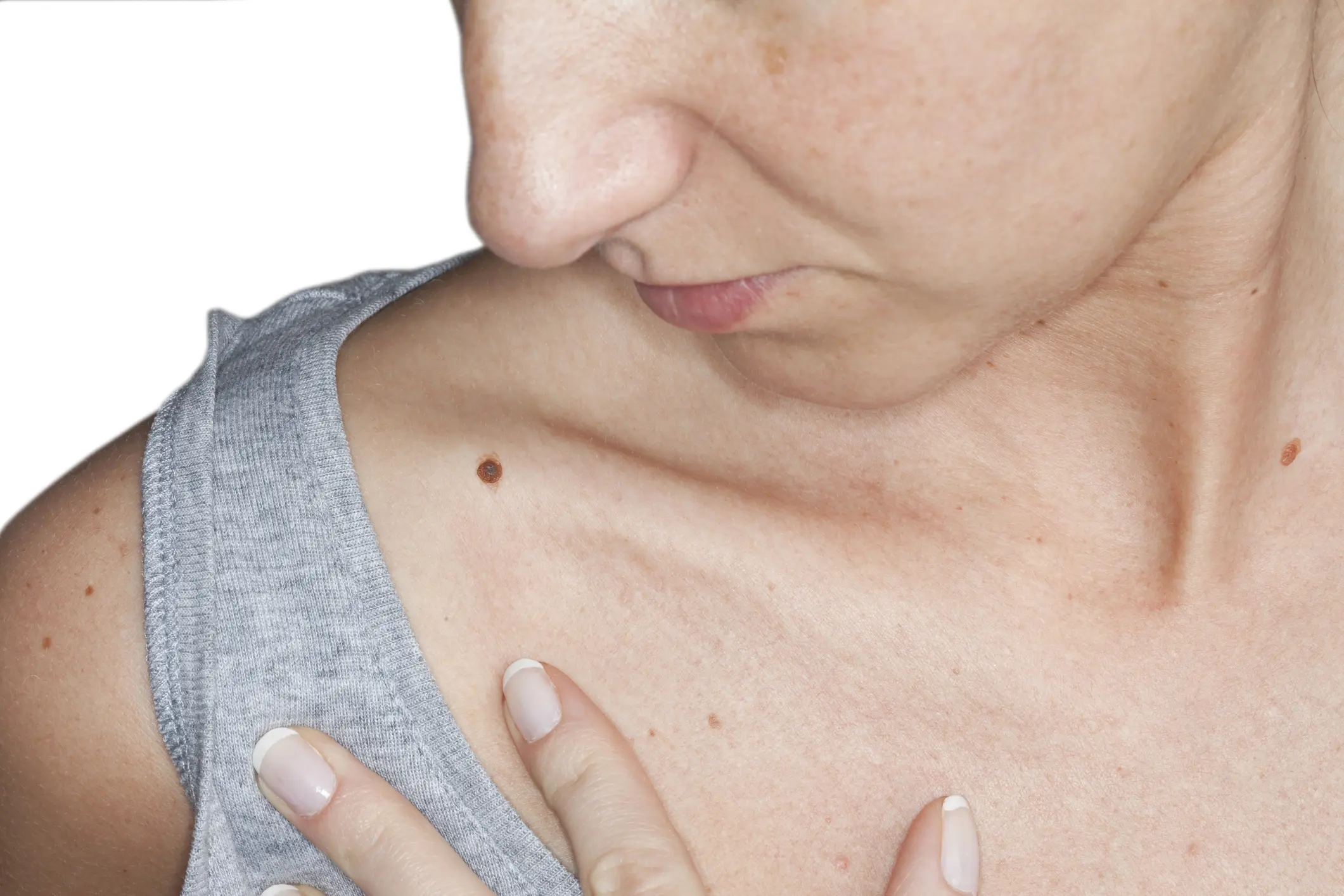Skin Cancer in West Palm Beach, FL
You may enjoy the warmth of the Florida sun on your skin, but all that sunshine increases your risk of skin cancer. At Dermatology Associates of the Palm Beaches, with offices in Palm Beach Gardens, West Palm Beach, Atlantis, Wellington, Delray Beach, and Trinity, Florida, the experienced board-certified dermatologists specialize in the diagnosis and treatment of skin cancer. To schedule a skin cancer screening, call or click here to book an appointment online.

What are the types of skin cancer?
Skin cancer is the most common type of cancer in the United States. There are many types of skin cancer. However, some are more common than others:
Basal cell carcinoma
Basal cell carcinoma typically develops on sun-exposed areas of your skin, such as your face and neck. These types of skin cancer lesions may look like a waxy bump or nonhealing scab.
Squamous cell carcinoma
Squamous cell carcinoma also tends to develop in sun-exposed areas of the body. This type of cancer is more common in dark-skinned individuals, and lesions may appear firm and red or flat and crusty.
Melanoma
Melanoma is the most dangerous type of skin cancer because it spreads rapidly. Unlike basal and squamous cell carcinoma, melanoma can develop anywhere on your body, including areas not exposed to the sun.
When should I start skin cancer screening?
Dermatology Associates of the Palm Beaches suggests when you should start skin cancer screening based on your skin type and personal medical and family history. However, the dermatology practice recommends everyone 50 and older have a skin cancer screening every year.
What happens during a skin cancer screening?
Skin cancer screening at Dermatology Associates of the Palm Beaches is a comprehensive head-to-toe evaluation of your skin, as well as a review of skin cancer risk factors.
During the screening, your provider reviews your sun-exposure history, and then closely examines your skin, starting with your scalp and progressing through your entire body.
If they find an abnormal lesion or mole, they perform a biopsy.
Patient Reviews
“I go to Dr Green for skin check every 6 months. Dr. Green is knowledgeable and quickly identifies potential problem areas. I have been going to Dr. Green for 20+ years. He has removed skin cancers from me many times. I am so glad he is my doctor. I trust his judgement..
Follow up: I have skin check every 6 months. Latest was a few days ago, no problems. Staff friendly and very nice. And Dr Green very thorough and experienced.” – Barbara E.
How is skin cancer treated?
Removal of the skin cancer lesion is the primary treatment. Dermatology Associates of the Palm Beaches offers many skin cancer treatment options, including:
Mohs surgery
Mohs surgery is an innovative surgical treatment option for skin cancer aimed at preserving as much healthy tissue as possible. The team at Dermatology Associates of the Palm Beaches includes fellowship-trained Mohs surgeons.
Excisional surgery
During excisional surgery, your surgeon removes the entire lesion, along with a surrounding border of normal tissue.
Electrodesiccation and curettage
During electrodesiccation and curettage, your surgeon uses a circular scalpel to scrape off the legion and then uses an electric needle to destroy any residual cancerous tissue and stop the bleeding.
Cryosurgery
Dermatology Associates of the Palm Beaches uses cryosurgery to destroy precancerous and cancerous tissue by freezing it with liquid nitrogen.
If needed, Dermatology Associates of the Palm Beaches also performs reconstructive surgery following the removal of your skin cancer to restore function and appearance.
For expert skin cancer care, call Dermatology Associates of the Palm Beaches or click here to book an appointment online.
